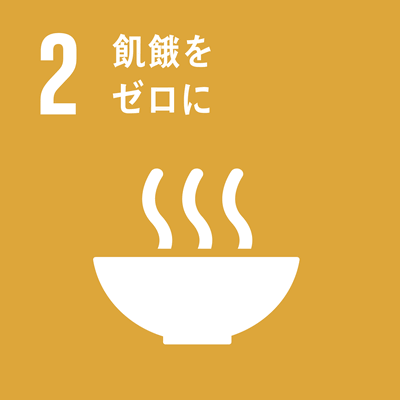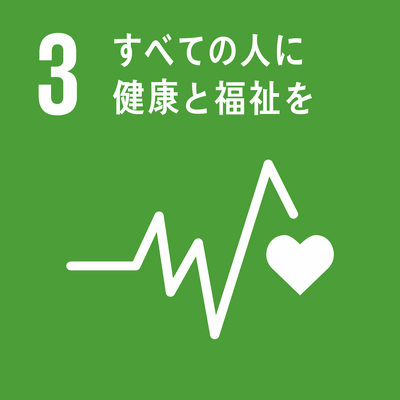シラバス表示
シラバスの詳細な内容を表示します。
→ 閉じる(シラバスの一覧にもどる)
科目の基本情報
| 開講年度 | 2022 年度 | |
|---|---|---|
| 開講区分 | 工学研究科(博士前期課程)分子素材工学専攻 | |
| 領域 | 主領域 : F; 副領域 : D | |
| 受講対象学生 |
大学院(修士課程・博士前期課程・専門職学位課程) : 1年次, 2年次 |
|
| 選択・必修 | 選択 |
|
| 授業科目名 | 分子素材工学特別講義 IV | |
| ぶんしそざいこうがくとくべつこうぎ IV | ||
| Topics in Chemistry for Materials IV | ||
| 単位数 | 1 単位 | |
| ナンバリングコード | EN-PHCH-5
|
|
| 開放科目 | 非開放科目 | |
| 開講学期 |
後期集中 |
|
| 開講時間 |
|
|
| 授業形態 |
対面授業 * 状況により変更される可能性があるので定期的に確認して下さい
「オンライン授業」・・・オンライン会議ツール等を利用して実施する同時双方向型の授業 |
|
| 開講場所 | ||
| 担当教員 | 石谷 暖郎(非常勤講師:東京大学特任教授) | |
| ISHITANI, Haruro | ||
| SDGsの目標 |
|
|
| 連絡事項 | * 状況により変更される可能性があるので定期的に確認して下さい |
|
学修の目的と方法
| 授業の概要 | あらゆる製品の供給において、利潤を最大化するためには製造から市場までを一体化(連続)させることが重要です。これまで食品や電化製品、自動車などでこの方式が採られていましたが、近年、医薬品などを代表とする高付加価値化学品でも実現させようという動きがあります。本講義では、連続生産の鍵となる化学品連続合成技術を中心に、その基幹となる固体触媒反応や固体触媒作用に関し、過去10年ほどの研究例を広く取り上げ、展望を含め概説します。 (Course description/outline) In order to maximize profits in manufacturing substances, construction of seamless sequences of whole value-chain of products is highly important. Not only automobiles, steels, electric devices, and foods, but also chemical substances should be manufactured under such manner, and there’s a big movement for realizing this in all over the world. Flow chemical syntheses are important technologies in upstream of continuous manufacturing of chemicals and provide a solution to realize sustainable chemical production. In this seminar, state-of-the-art in continuous-flow organic synthesis will be lectured. Catalytic flow reactions with heterogeneous catalyses, a key issue for flow organic synthesis, will also be discussed including their fundamentals. |
|---|---|
| 学修の目的 | 連続フロー有機合成の基礎、世界的な潮流と最新の研究を知識として得るとともに、その基幹技術となる固体触媒を活用した触媒フロー反応、並びに固体触媒化学に関する基礎を理解する。 (Learning objectives) Understanding the fundamentals, the world’ movements, and state-of-the-art in continuous-flow organic synthesis, as well as heterogeneous catalyses in fine organic synthesis. |
| 学修の到達目標 | フロー有機合成の重要性、従来のバッチ法との相違点と評価、ならびに固体触媒活用フロー反応の基礎。 (Achievements) Importance and difference of continuous-flow organic synthesis comparing with the batch counterpart. Fundamentals of catalytic flow reactions with heterogeneous catalyses. |
| ディプロマ・ポリシー |
|
| 成績評価方法と基準 | 出席とレポートで評価する。 (Grading policies and criteria) Attendance and Report. |
| 授業の方法 | 講義 |
| 授業の特徴 | |
| 授業改善の工夫 | |
| 教科書 | 特になし。 より深く理解するための参考図書として、「有機合成のためのフロー化学(東京化学同人:ISBN 9784807909926)」(ただし準備する必要はありません) (Textbooks) Nothing special: For further and deep understanding; Flow Chemistry- Applications (De Gruyter Textbook: ISBN: 9783110289152) |
| 参考書 | 特になし |
| オフィスアワー | |
| 受講要件 | 特になし |
| 予め履修が望ましい科目 | |
| 発展科目 | |
| その他 |
英語対応授業である。 |
授業計画
| MoodleのコースURL |
|---|
| キーワード | 連続生産・連続フロー合成・有機合成・固体触媒化学 |
|---|---|
| Key Word(s) | continuous manufacturing, continuous-flow chemistry, organic synthesis, heterogenous catalysis |
| 学修内容 | (i) 連続フロー有機合成概説 (ii) 連続フロー有機合成の分類と特性 (iii) 固体触媒化学概説 (iv) 固体触媒と連続フロー有機合成 (v) 連続フロー法による化学品の連続合成 (Course contents) (i) Outlook: Current state of continuous-flow organic synthesis (ii) Classification and features of continuous-flow organic synthesis (iii) Heterogeneous catalyses for organic synthesis (iv) Continuous-flow organic synthesis with heterogeneous catalyses (v) Continuous production of value-added compounds with flow methods |
| 事前・事後学修の内容 | |
| 事前学修の時間:300分/回 事後学修の時間:600分/回 |

